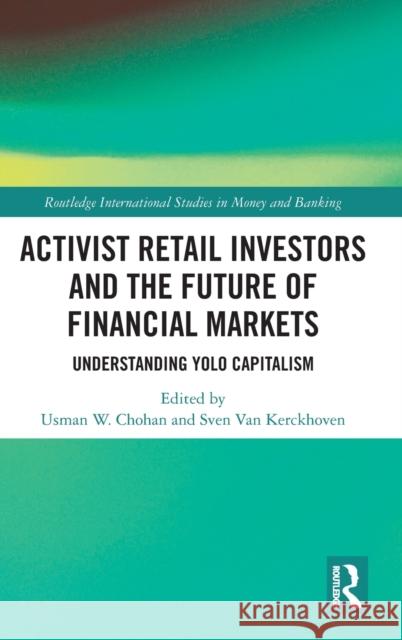Activist Retail Investors and the Future of Financial Markets: Understanding YOLO Capitalism » książka
Activist Retail Investors and the Future of Financial Markets: Understanding YOLO Capitalism
ISBN-13: 9781032397252 / Angielski / Twarda / 2023 / 272 str.
Activist Retail Investors and the Future of Financial Markets: Understanding YOLO Capitalism
ISBN-13: 9781032397252 / Angielski / Twarda / 2023 / 272 str.
(netto: 627,14 VAT: 5%)
Najniższa cena z 30 dni: 629,67 zł
ok. 22 dni roboczych
Bez gwarancji dostawy przed świętami
Darmowa dostawa!
This book deploys many different subdisciplines to explore the recent ‘power grabbing’ of retail investors and the online environment that enables them to join the ranks of major financial players, and participate in contemporary capitalism, and offers perspectives on their future prospects in contemporary financial markets.
Contemporary financial markets have been characterized by sociocultural phenomena such as "meme stocks", the Gamestop short squeeze, and "You Only Live Once (YOLO) trading". These are movements led by small-scale retail investors banding together to participate forcefully in financial markets through decentralized but coordinated actions.
This book deploys many different subdisciplines to explore the recent ‘power grabbing’ of retail investors and the online environment that enables them to join the ranks of major financial players, and participate in contemporary capitalism. It offers multiple perspectives on the genesis, role, motivations, power, and future prospects of retail investors as a force in contemporary financial markets. Drawing upon the insights of authors hailing from many different countries, the book frames YOLO capitalism through numerous angles that help to explain the context and the importance of activist retail investors in modern financial markets, and thereby explore the possibilities of a transformed financial future with much wider small-scale participation.
The book assesses the potential of online - and other - communities in enabling global coordination in impacting or even driving financial and crypto markets, and the challenges that come with it and weighs the competing narratives both positive and negative regarding YOLO capitalism. It strikes a balanced assessment of their legal, cultural, behavioural, economic, and political roles in modern finance.
This book will be of interest to a multidisciplinary and interdisciplinary audience of scholars in financial markets, financial regulation, political economy, public administration, macroeconomics, corporate governance, and the philosophy and the sociology of finance.











